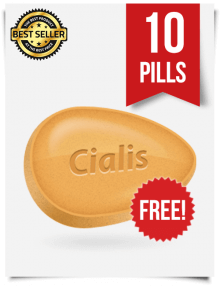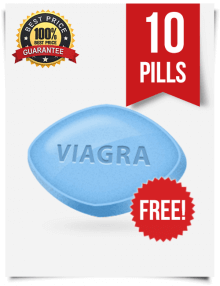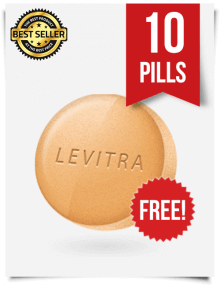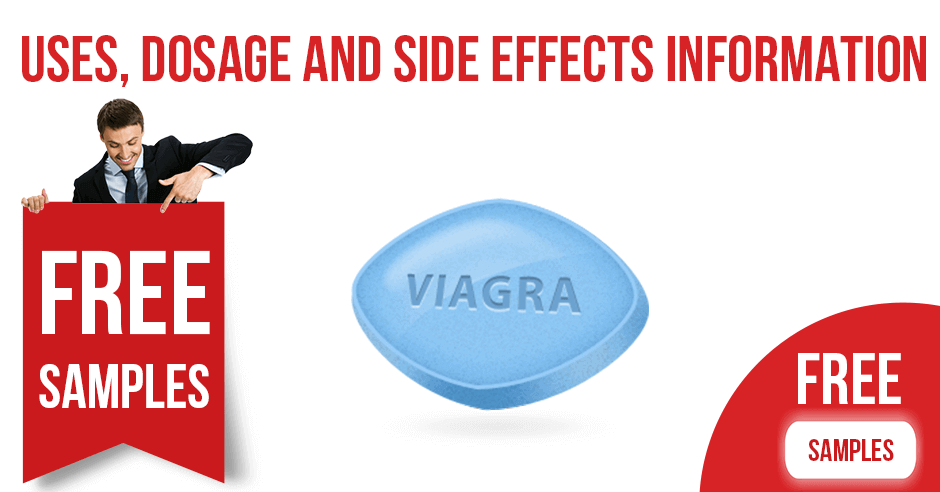Erectile dysfunction, also known as male impotence, affects over half of the male population at some point in their lives; it is thought that over 30 million men in the US alone suffer from ED at any given time.
ED is generally characterized as the inability to gain or maintain an erection, and is often accompanied by an inability to orgasm and/or ejaculate. Erectile dysfunction is often under-diagnosed in men due to low incidence of self-referral to a doctor, or refusal to confide in a doctor that the problem exists.
Inability to maintain an erection or achieve orgasm can lead to depression, self-esteem issues, and difficulty in maintaining healthy relationships. Men should be aware that there is no reason not to see a doctor for sexual dysfunction issues, as they can often be readily solved in a discreet manner. While several options exist for solving this common problem, oral medication with an erectile dysfunction drug is the first line of treatment, with a high success rate and a low incidence of serious side effects.
Causes of erectile dysfunction
While erectile dysfunction is a physical condition, its cause can be medical, mental, emotional, or psychological. Stress, anxiety, alcohol or drug use, and depression are common factors among many men who experience ED. However, the cause is often physical in nature and tied to other conditions.
These include but are not limited to diabetes (which can damage nerves and blood vessels); kidney disease (which can affect hormones); nerve and brain disorders (such as Parkinson’s, Alzheimer’s, or MS); high blood pressure and/or cholesterol; injury to the penis, pelvis, bladder, or spinal cord; hormone issues related to hormone treatments or pituitary gland tumors; prostate disease or enlargement; or a venous leak that reduces blood flow to the penis.
Men who are heavy smokers, who consume large amounts of alcohol, or who use street drugs are also at high risk for erectile dysfunction. Other causes can include being exposed to certain substances in living, work, or school environments, including certain pesticides, chemicals, solvents, and lead concentrations. Whether the cause is environmental, physical, mental, emotional, or psychological, there are treatments that can help restore function and pleasure.
Different types of ED treatment
Erectile dysfunction can be treated in various ways. If the cause is found to be primarily psychological and linked to anxiety, stress, and/or depression, successful treatment of the underlying cause will often resolve the condition. If the patient is a heavy smoker, smoking cessation may be helpful. Other treatments include injections, testosterone therapy, or the application of penis pumps. Surgical intervention or penile implants are generally a final resort when all other avenues have failed.
For most men, however, oral ED medications prove successful in resolving persistent ED, and can restore normal function during sex. Oral drugs have a low incidence of severe side effects, are discreet enough to take hours before a sexual encounter, and relieve anxiety and self-consciousness regarding sexual performance.
Treating erectile dysfunction (ED) with oral medication
The first step to an appropriate medical treatment of erectile dysfunction is telling a doctor about the problem. A full medical exam and review of medical records and current prescriptions will generally be conducted to rule out serious medical conditions, formally diagnose the issue, and ensure that oral medication is a safe form of treatment for the patient’s ED. If there are no contraindications, a doctor will often prescribe Viagra. Uses, dosage, and side effects information will be dispensed along with the prescription. This helps ensure that the patient is both educated about the proper administration of the drug and able to recognize any side effects.
Uses for erectile dysfunction medication
The most common medication for erectile dysfunction works by encouraging increased blood flow to the penis following sexual arousal and/or stimulation. The “little blue pill” is generally taken shortly before a sexual encounter is expected to take place, and results in a firm, long-lasting erection that can be sustained until ejaculation or even longer. Most men find that this medication works very well, and report satisfactory sexual engagements with few or no side effects.
Several other conditions have been found to be treatable with certain kinds of ED medication. Women with pulmonary hypertension (a life-threatening lung condition that causes extreme fatigue and shortness of breath) may regain the ability to exercise without experiencing debilitating symptoms when taking similar medication. Those with Reynaud’s Syndrome can also benefit from the drug’s ability to increase circulation in the extremities, lessening pain in the fingers and toes. Other “off-label” uses for ED medications include helping to prevent heart failure in patients being treated for prostate cancer, and reducing the symptoms of altitude sickness.
Patients should not use their ED medications for off-label use unless directed to do so by a medical professional. Using these types of drugs without specific instructions and awareness of possible side effects can have untoward consequences. Always ask a doctor before taking any medication.
Erectile dysfunction medication dosages
The most common ED medication comes in 25, 50, and 100 mg tablets. The usual recommended dose is 50 mg, to be self-administered orally 30-60 minutes before sexual activity. However, the dose may be reduced to 25 mg if the lower dosage is sufficient, or increased to 100 mg if 50 mg yields less than satisfactory results. The medication may also be taken up to four hours before a possible sexual encounter.
Only one dose per day is recommended; therefore doctors will usually inquire about the anticipated frequency of sexual activity and prescribe a corresponding number of tablets for each 30-90 day period. It is important not to increase or decrease the amount of medication without the guidance of a doctor. Taking larger doses than prescribed or more than one dose per 24 hours could lead to serious side effects.
Doses can be taken with or without food. Certain foods or beverages can inhibit the onset of drug efficacy or cause larger than normal amounts of it to gather in the bloodstream. Education of the patient is advised to ensure that ED drugs are always used safely and to the best effect.
Possible side effects of erectile dysfunction medication
Many people who take medication for erectile dysfunction experience no side effects at all. Doctors do provide warnings about side effects that have been reported by 1% or more of patients taking the medication. Patients who experience side effects should contact their doctor; depending on type and severity of the side effect, an adjustment in dosage, change in other medications, or discontinuance of the ED medication may be advised.
The most common side effects related to ED medication are mild, and may include nausea, dizziness, flushing, headache, or a stuffy nose. Patients can speak to their doctor or pharmacist about managing these symptoms. In most cases, these symptoms are not severe enough to discourage patients from continuing to use the drug.
More severe side effects are less common, and include severe dizziness resulting in fear of falling or an actual fall; an intense headache that refuses to go away; stomach discomfort after meals; or eye problems such as redness, burning, or swelling, blurred vision, sensitivity to light, changes in the way colors are perceived, partial or temporary vision loss, or double vision. These symptoms should prompt an immediate call to a doctor. Medical attention may be required, or the ED medication may simply have to be discontinued.
Very rarely, ED medication can cause an extremely severe reaction. Medical attention should be sought immediately if any of the following occur: an allergic reaction such as itchiness; a rash (especially a rash that spreads quickly, covers a large area of the body, or is combined with fever or discomfort); blistering or peeling of the skin, or swelling of the tongue, lips, or throat; shortness of breath; hearing problems; chest pains or an irregular heartbeat; seizures; a painful erection or one that lasts more than four hours.
Additional Information about erectile dysfunction medication
While erectile dysfunction medication is generally regarded as safe as long as it is not contraindicated, there are certain situations that can increase or decrease the desired effect. Education about common interactions with other medicines, foods, and beverages can help prevent any unexpected consequences.
Various commonly prescribed medications can interfere with the safety and efficacy of ED medication, so patients must be careful to disclose all medical conditions (especially heart conditions or blood pressure problems) and any existing medications (including over the counter medications and herbal or “natural” supplements).
Grapefruit juice can increase the amount of the drug in the bloodstream, and should be avoided when ED medication is being taken. ED medication taken with a high fat meal may take longer to have an effect. Large quantities of alcohol drunk before or after taking ED medication can result in an inability to achieve an erection despite the medication, and can also cause a drop in blood pressure, leading to a dizzy spell or fainting.
ED drug safety
Patients with poor liver or kidney function may require a reduced dose of ED medication, and should have their doctor periodically check the levels of medication in their system. Patients who take medication for prostate issues should check with their doctor to see if their medications include alpha blockers, as these drugs can cause a drop in blood pressure if taken together with ED medication.
Other medications that may interact with ED drugs include certain antibiotics and antifungals, inhibitors used to treat HIV, barbiturates, beta-blockers, diuretics, statins and St. John’s Wort. The possibility of an interaction does not mean patients should avoid ED medication; rather, all medications should be discussed with a doctor and/or pharmacist to ensure that the medication regimen is safe.
Caffeine, alcohol, over the counter medications, natural supplements, herbal teas, and street drugs can cause possible interactions with prescription medication, so patients considering ED drugs should compile a complete list of any and all of the above to present to their doctor to avoid any adverse reactions.
Erectile dysfunction medications do not prevent sexually transmitted diseases or prevent pregnancy, so safe sex should always be practiced. Persons with congenital or trauma derived penile malformations should consult a specialist before using ED medications, as increased blood flow can cause complications.
Contraindications for ED drug use
Erectile dysfunction medications are generally considered unsafe for patients who are allergic to any of the ingredients in the medication; who have been advised to refrain from sexual activity; or who have a history of vision problems caused by decreased blood flow to the retinas of the eyes.
Anyone taking any form of nitrates, including oral medications, skin patches, nasal sprays, sublingual (under the tongue) doses, or recreational “poppers”, should not take ED medications as an unsafe drop in blood pressure can result. Dangerously low blood pressure can lead to dizziness, fainting, heart attacks or strokes.
Purchasing erectile dysfunction drugs illegally or without a prescription or borrowing them from someone else is not advised, as there is no guarantee that the medication is properly formulated. Patients should always make sure that ED medications are safe for them to take by checking with their doctor, getting a formal diagnosis of ED, and acquiring a legal prescription for their medication. This reduces the chance of having a serious side effect due to unauthorized use of a drug like Viagra. Uses, dosage and side effects information should always be provided along with the prescription, and should be read by patients before self-administration.
Success rates for erectile dysfunction medication
Studies done on groups of patients using oral erectile dysfunction drugs showed a low incidence of side effects. The incidence of side effects increases mildly with age, and side effects are more common among patients who take numerous other medications that may trigger an interaction. Over 80% of men who try ED drugs find that they are successful in achieving and maintaining an erection and are able to perform sexually to their and their partners’ satisfaction.
Bonus: You can order free generic Viagra trial & get it delivered by mail in a week.

 Trial Free Cialis 20 mg 10 Samples
Trial Free Cialis 20 mg 10 Samples Samples of Viagra 100 mg 10 Pills for Free
Samples of Viagra 100 mg 10 Pills for Free Free Levitra Trial Pack 10 x 20mg
Free Levitra Trial Pack 10 x 20mg
